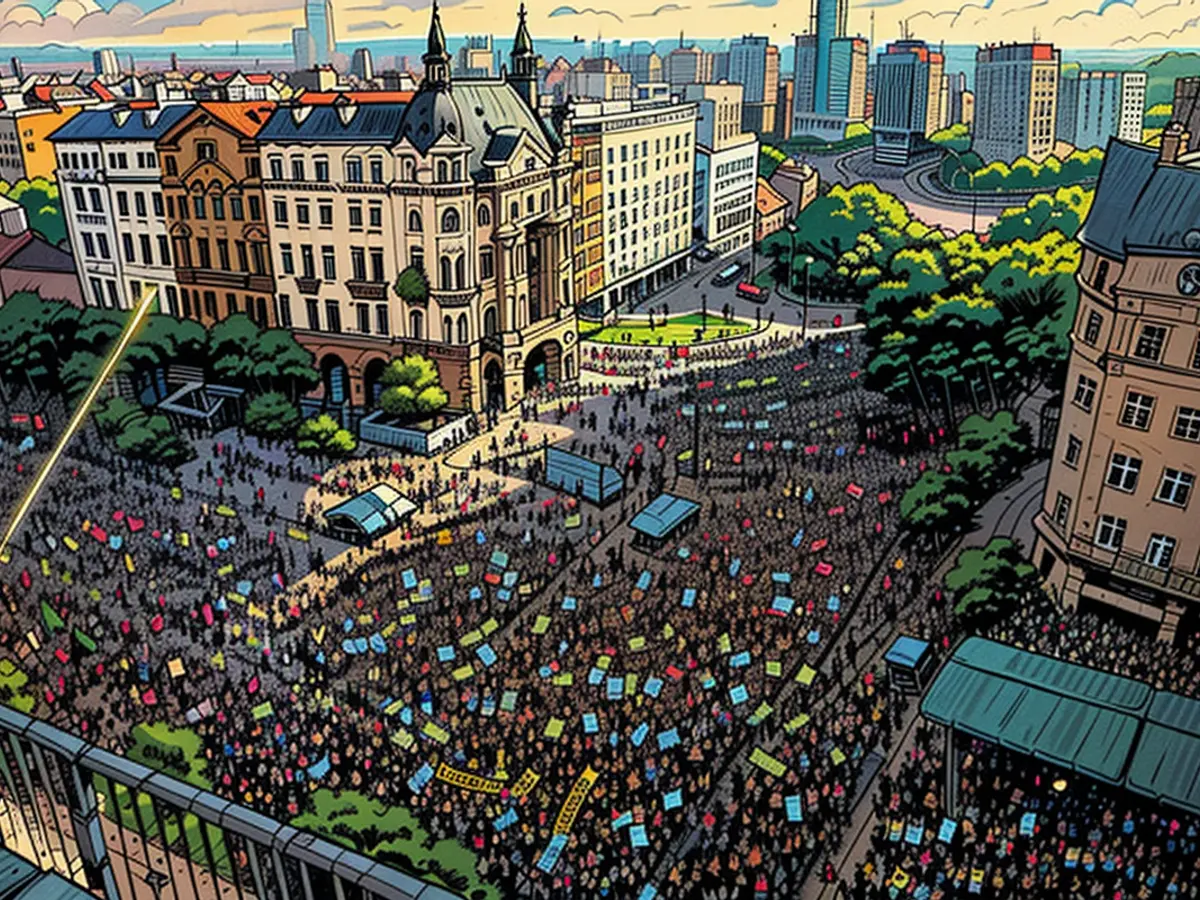Serbia: Protests are Western hybrid warfare
Tens of thousands take to the streets in Serbia against a lithium project. President Vucic threatens harsh action by security forces and labels the protests as hybrid warfare by Western powers aiming to topple his government.
Serbian President Aleksandar Vucic has condemned protests against a planned lithium mining project in the country. He said the demonstrators were part of a hybrid war waged by the West against his government. Vucic threatened to take harsh action against the protesters who blocked traffic in the capital on Saturday.
In one of the largest protests in years, tens of thousands gathered in Belgrade to protest against lithium mining in Serbia. Some demonstrators later blocked the tracks of two train stations and temporarily halted traffic on a major road. Riot police evicted them from the train station buildings in the morning. Interior Minister Ivica Dacic said 14 people had been taken in for questioning. The police are working to identify all culprits who could face charges.
Vucic told reporters that the main protest was democratic, but blocking traffic on the highway was "terror by a minority against the majority." He said this was part of a hybrid approach aimed at overthrowing the government. "We knew everything in detail," he said. "We maintained order in the country without violence."
Vucic offers referendum
Vucic said last week that he had been warned by Russian intelligence that mass unrest and a coup were being prepared in Serbia by unnamed Western powers seeking to remove him from power. Government representatives and state-controlled media launched a large-scale campaign against Saturday's demonstration, comparing it to the Maidan uprising in Kyiv, Ukraine, in 2014, which led to the overthrow of the then pro-Russian President Viktor Yanukovych. The organizers of the Belgrade protest repeatedly denied these allegations.
In recent weeks, protests have taken place across Serbia against a government plan to allow lithium mining in a lush valley in the west of the country. The project was abandoned in 2022 after mass demonstrations, during which important bridges and roads were also blocked. However, it was revived last month and gained momentum from a preliminary agreement on critical raw materials signed between the Serbian government and the European Union.
Vucic said that lithium mining would not take place in Serbia for the next two years while all risks were being assessed. He appeared to be trying to appease critics. The president also offered a referendum on the issue - although it is unlikely that opponents of the project will agree, as Vucic has repeatedly been accused of manipulating votes in his favor.
Despite Vucic's offer for a referendum on the lithium mining project, the protests against it continue to persist in various parts of Serbia. The government's decision to revive the project, despite the previous mass demonstrations, has fueled these protests, with tens of thousands participating in recent rallies.








